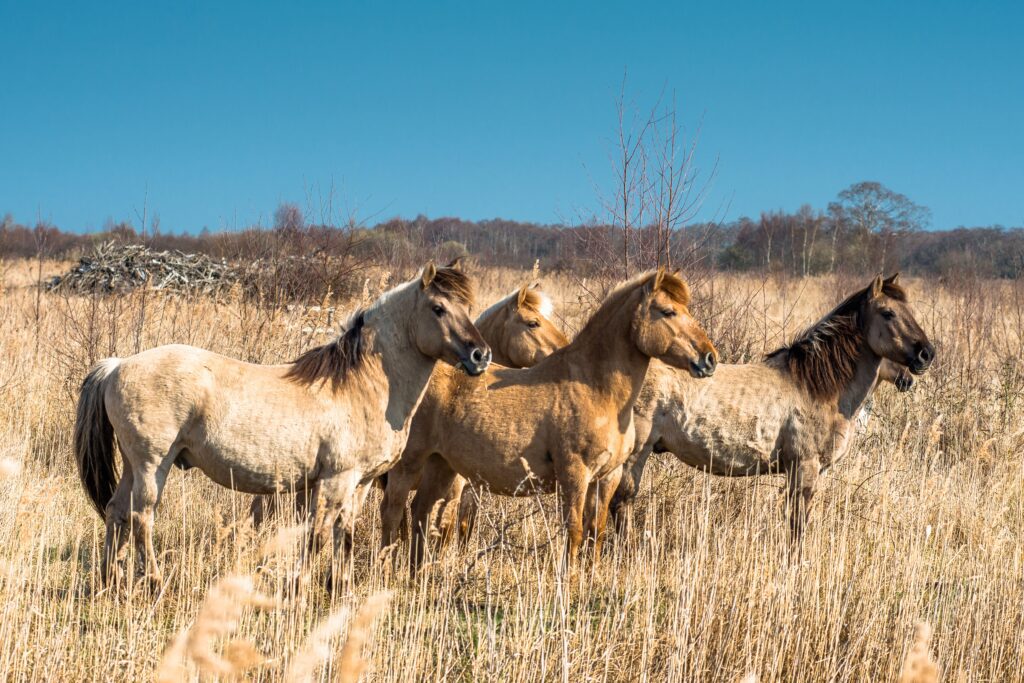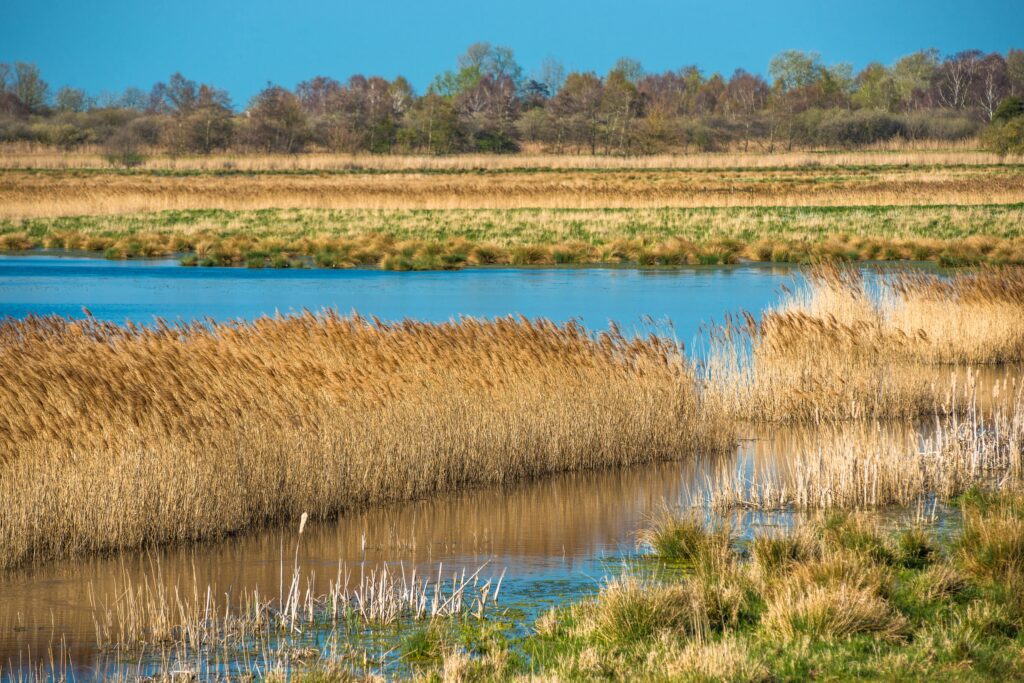
Ajay Tegala
DesignationAjay Tegala is a wildlife presenter, a conservationist, and the author of Wetland Diaries: Ranger Life and Rewilding on Wicken Fen.
In an era defined by climate uncertainty and biodiversity decline, a newly completed restoration project in the East of England offers a rare and powerful message: hope.
The National Trust has just concluded its largest lowland peatland restoration to date at Wicken Fen in Cambridgeshire, one of the UK’s oldest nature reserves. Covering nearly 600 acres, this ambitious effort not only revives a vital ecosystem but offers a model for how we can meet today’s environmental challenges through nature-based solutions.
Within hours of raising the water level on Burwell Fen – a parcel of former arable land acquired by the National Trust in 2001 – cranes and great egrets arrived to investigate. Spoonbills followed, alongside little ringed plovers. This response from wildlife is more than poetic; it’s proof that, given the chance, nature will bounce back.
Why Peatlands Matter
Peatlands are one of our most important and overlooked natural assets. While they cover just 3 per cent% of the Earth’s surface, they store more carbon than all the world’s forests combined. In their healthy, waterlogged state, they act as vast carbon sinks. But when drained or damaged, they flip into carbon sources, releasing greenhouse gases and accelerating climate change.
The peatlands at Wicken Fen have been at risk for generations. However,But in an age where flood resilience, water security, and carbon capture are becoming urgent national priorities, restoring such landscapes is no longer optional – it is essential.
The six-month restoration project at Wicken Fen involved a suite of practical interventions, from rewetting deep peat in Burwell Fen to installing a waterproof liner along 300 metres of boundary bank, helping to keep water locked in the landscape. Scrub was cleared to return areas to open fen, a habitat once widespread across eastern England but now perilously rare.
Thanks to funding from the Nature for Climate Peatland Grant Scheme –, managed by the Fens East Peat Partnership – and support from donors and corporate partners – including Starling Bank and Anglian Water, this work has been delivered at scale and pace.
Nature Recovery With Cutting-Edge Technology
This is not restoration as it used to be – reliant solely on manpower and hope. At Wicken Fen, solar-powered pumps are now being used to manage water levels sustainably. These not only reduce reliance on carbon-intensive infrastructure but help build climate resilience into the system. Meanwhile, long-term monitoring by the UK Centre for Ecology and Hydrology will track hydrology, water quality, and greenhouse gas emissions, ensuring the results of the work are scientifically measured and continually improved upon.
“Nature is declining at an alarming rate, and the climate crisis is placing unprecedented pressure on the places and species we care about,” said Emma Ormond-Bones, General Manager at Wicken Fen. “This project is a powerful step forward in the restoration of our natural world. It’s providing the space and conditions nature needs to recover, while also helping to store carbon and make landscapes more resilient to future environmental challenges.”
A Window into Deep Time

Perhaps most evocatively, the restoration has peeled back not just the layers of habitat but of history. During excavation works, a remarkable archaeological discovery was made: a bog oak, unearthed from the peat and dated by the Cambridge Archaeological Unit to 2894 BC. This ancient tree predates the construction of Stonehenge.
Mark Knight, of the Cambridge Archaeological Unit, called the discovery a “wonderful relationship between depth and time,” reminding us that peat holds more than carbon – it holds stories. From a 19th-century windpump base to a 20th-century lemonade bottle, each layer tells of how people have shaped – and been shaped by – this landscape.
As Peatland Restoration Project Manager Ellis Selway puts it,: “Peatlands can teach us a great deal about where we’ve come from and how we can act now to shape a better, more sustainable future.”
A Blueprint for National Action
This is not just a local success story. It is an example of what can be achieved when long-term vision, partnership funding, and political will come together. Across England, Wales, and Northern Ireland, the National Trust alone cares for 25,000 hectares of peatland. But around 70 per cent% of the UK’s peatlands remain in a degraded state.
The Ggovernment has already recognised the urgency through its England Peat Action Plan and the funding of schemes like this one. However, much more needs to be done – from protecting remaining peat from extraction and agricultural drainage, to investing in skills and jobs for a restoration economy.
As policy-makers, local leaders, and business decision-makers consider how best to respond to the twin crises of biodiversity loss and climate breakdown, Wicken Fen offers a timely reminder: restoring nature is not a luxury or an afterthought, i. It’s an investment in our climate, our communities, and our collective future.
Closing the Gap Between Policy and Place
Nature restoration is not just about environmental outcomes; it’s about people, too. The work at Wicken Fen is reconnecting communities with wild places, offering green space for public wellbeing, and providing natural flood management downstream. It’s boosting biodiversity while also future-proofing land for sustainable water use and climate resilience.
Caroline Thorogood, Senior National Consultant on peatlands at the National Trust, summed it up,: “The project at Wicken Fen is returning our most significant area of lowland peat to a wetter, more nature-rich landscape that is good for people and wildlife.”
As we look ahead to decisions that will shape the UK’s environmental legacy for generations, Wicken Fen stands as proof that restoration works – for nature, for history, and for the climate.
What’s particularly powerful about wetland and peatland restoration is the speed at which the benefits can be seen. At Wicken, rare birds returned within hours. Carbon is now being locked back into the soil. In contrast to projects like the restoration of ancient woodland – which, while vitally important, may take decades or even centuries to fully mature – rewetting peatlands offers almost immediate wins for biodiversity, climate resilience, and human wellbeing.
Wicken Fen shows us that, with the right tools, partnerships, and political will, nature can recover rapidly – and spectacularly.
Images via Shaun Barr/Shutterstock

